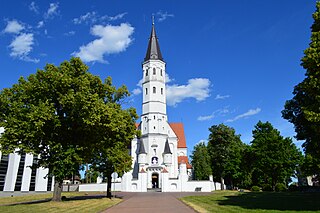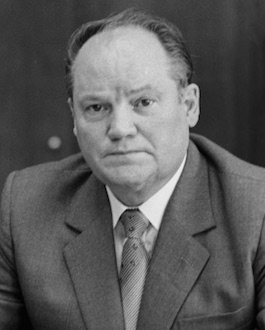
Lithuania, officially the Republic of Lithuania, is a country in the Baltic region of Europe. It is one of three Baltic states and lies on the eastern shore of the Baltic Sea. It borders Latvia to the north, Belarus to the east and south, Poland to the south, and the Russian semi-exclave of Kaliningrad Oblast to the southwest, with a maritime border with Sweden to the west. Lithuania covers an area of 65,300 km2 (25,200 sq mi), with a population of 2.88 million. Its capital and largest city is Vilnius; other major cities are Kaunas, Klaipėda, Šiauliai and Panevėžys. Lithuanians belong to the ethnolinguistic group of the Balts and speak Lithuanian.

Vilnius, previously known in English as Vilna, is the capital of and largest city in Lithuania and the second-most-populous city in the Baltic states. The city's estimated July 2024 population was 605,270, and the Vilnius urban area has an estimated population of 708,627.

Klaipėda, historically also Memel, is a city in Lithuania on the Baltic Sea coast. It is the third largest city in Lithuania, the fifth largest city in the Baltic States and the capital of Klaipėda County, as well as the only major seaport in the country.

Šiauliai is a city in northern Lithuania, the country's fourth largest city and the sixth largest city in the Baltic States, with a population of 112 581 in 2024. From 1994 to 2010 it was the capital of Šiauliai County.

Telšiai is a city in Lithuania with about 21,499 inhabitants. It is the capital of Telšiai County and Samogitia region, and it is located on the shores of Lake Mastis.

Lithuanian National Drama Theatre, located on Gediminas Avenue in Vilnius, is one of Lithuania's most prominent publicly funded performing arts venues and cultural institutions. Founded as a Vilnius State Theatre in 1940, it became Lithuanian National Drama Theatre in 1998. The theatre's façade featuring the Feast of Muses sculpture by Stanislovas Kuzma has become a landmark of Vilnius city.

Ringaudas Bronislovas Songaila was an official of the Lithuanian SSR nomenclatura. In 1987–1988, he was the First Secretary of the Communist Party of Lithuania or the de facto head of state.

Rambynas is a hill on the right bank of the Neman River in Rambynas Regional Park, Pagėgiai Municipality, western Lithuania. The current hill, about 46 metres (151 ft) above sea level and about 40 metres (130 ft) above the Neman, is a remnant of the larger hill that was destroyed by erosion. The hill was known as sacred among locals and played a role in the ceremonies of pagan Lithuanians. It is featured in many local legends and is protected by the state as a mythological object. A large stone at the top of the hill, known as the altar stone, was destroyed by a miller in 1811. Rambynas became popular with Prussian Lithuanians at the end of the 19th century who organized various events, most notably celebrations of the Saint Jonas' Festivals or Rasos, on the hill. They rebuilt the altar in 1928. The hill is popular with Lithuanian neo-pagans and hosts the annual celebrations of the summer solstice on 23 June.

Rail transport in Lithuania consists of freight shipments and passenger services. The construction of the first railway line in Lithuania began in 1859. As of 2021, the total length of railways in Lithuania was 1,868.8 km (1,161.2 mi). Lietuvos Geležinkeliai, the national state-owned railway company, operates most of the passenger and freight services.
Vytautas Kernagis was a Lithuanian singer-songwriter ("bard") actor, director, and television announcer. He is considered to be a pioneer of Lithuanian sung poetry.

Vytautas Pranas Bičiūnas was a Lithuanian artist, theatre actor, writer and art critic. As a member of the Lithuanian Christian Democratic Party, he was elected to the Constituent Assembly of Lithuania and the First Seimas.

Old Theatre of Vilnius, built in 1913 as Pohulanka Theatre and formerly known as Russian Drama Theatre of Lithuania and other names, is a theatre in the Old Town of Vilnius. It is the only professional theatre in Lithuania that stages performances in Russian.

The Ministry of Economy and Innovation of the Republic of Lithuania is a government department of the Republic of Lithuania. Its operations are authorized by the Constitution of the Republic of Lithuania, decrees issued by the president and prime minister, and laws passed by the Seimas (Parliament). Its mission is to develop positive legal and economic environment for economic development and ensure public welfare and employment.
Vairas was a Lithuanian-language political and cultural newspaper published by Antanas Smetona and the Lithuanian Nationalist Union, the ruling party in Lithuania in 1926–1940. It was published three separate times. Vairas was first established in January 1914 when Smetona departed Viltis; it was discontinued due to World War I. The newspaper was briefly revived in September 1923 when Smetona and Augustinas Voldemaras harshly criticized their political opponents and the Lithuanian government. Due to the anti-government rhetoric, their newspapers were closed by state censors one after another, but they would quickly establish a new newspaper under a new title. Vairas was closed in February 1924. The newspaper was reestablished as a cultural magazine in 1929 with the backing of the authoritarian regime of Smetona. In 1939, it became a weekly political magazine that pushed an agenda of radical nationalism and openly sympathized with National Socialism. The magazine was discontinued after the Soviet occupation of Lithuania in June 1940.

Bitėnai is a small village in the Pagėgiai Municipality, in western Lithuania. According to the 2011 census, it had population of 76, a decline from 119 in 2001. It is situated along the Neman River near the Rambynas hill and is known as the location of the Martynas Jankus printing press. Jankus Museum and the visitors' center of the Rambynas Regional Park are located in the village.
America in the Bathhouse is a three-act comedy by Keturakis. The play was first published in 1895. It became the first Lithuanian-language play performed in public in present-day Lithuania when a group of Lithuanian activists staged it on 20 August 1899 in Palanga. The play depicts an episode from the everyday life of the Lithuanian village – a resourceful man swindles money from a naive woman and escapes to the United States. Due to its relevant plot, small cast, and simple decorations, the play was very popular with the Lithuanian amateur theater. It became one of the most popular and successful Lithuanian comedies of all time and continues to be performed by various troupes.
The Lithuanian and Samogitian Charitable Society was a charitable society active in Saint Petersburg in 1892–1918. For a time, it was only legal Lithuanian organization in the Russian Empire. It provided financial support to Lithuanian students and maintained a Lithuanian school attached to the Church of St. Catherine. It also organized Lithuanian cultural evenings with amateur theater performances, dances, songs. In 1895, it staged the first public Lithuanian play in the Russian Empire.

Mikalojus Lipčius was the head of interwar Lithuanian military intelligence services (1919–1923), Vice-Minister of the Interior (1923–1924), and director of the finance department of the Ministry of Finance (1927–1940).

Kristupas Lekšas was a Prussian Lithuanian activist from Klaipėda Region.

Marta or Morta Zauniūtė was a Lithuanian press activist in Lithuania Minor. She is best remembered as the administrator of Lithuanian newspapers Varpas, Ūkininkas, and Naujienos from 1900 to 1905. Due to the Lithuanian press ban, these publications were printed in East Prussia and smuggled to Lithuania.
















